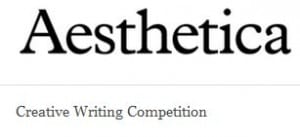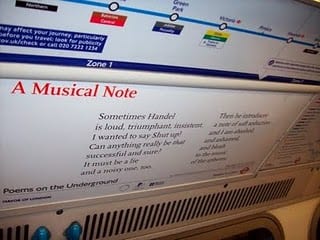Myslexia Poetry Competition: Costa award-winning poet Kathleen Jamie is the judge of this year’s Myslexia women’s poetry competition. £7 for up to three poems, the deadline is 17 June. More details available here http://mslexia.co.uk/whatson/msbusiness/pcomp_active.php here.
The Aesthetica Creative Writing Competition 2013 is now open for all writers and poets to submit entries in either the Poetry or Short Fiction category. Submissions previously published elsewhere are accepted. Deadline: 31 August 2013. Entry is £10 and allows for the entry of two works into any one category. For more information visit the Aesthetica websitewww.aestheticamagazine.com/creativewriting
The Rialto Nature Poetry competition is open for entries. The theme ‘Nature Poetry’ is a term which ‘will be given a very wide interpretation’ by judge Ruth Padel. £6 per poem and £3 per additional poem, the closing date is 30 September. Further information about submission formats and competition rules available here http://www.therialto.co.uk/pages/the-magazine/nature-poetry-competition-2013/




